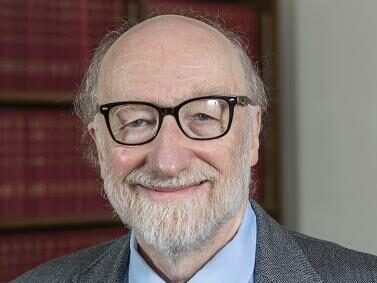July 1942- March 2021

“He came down to earth from Yorkshire, with his head on upside down!”
This was how Tony Greaves was described at the Liberal Review’s spoof Christmas carol. This was a fundraiser for the Association of Liberal Councillors. The ALC was held in the National Liberal Club just over thirty years ago. There was nobody active in the Liberal Party then who didn’t know Tony Greaves and nobody who didn’t have an opinion of him. He was one of the great Liberal “legends”. Very many people will be saddened by his sudden passing away today. His family’s grief will be shared widely within the “Liberal” family and also across all parts of the House of Lords.
I first met Tony when I was 17 and he was the Organising Secretary of ALC. It was 1977, a very difficult era for the Liberal Party. He had come to Liverpool, he said, “to find out how we succeeded there, at a time when virtually nobody else in the party managed to win”. He spent polling day with us working in two council by-elections in the very safe Labour constituency of Kirkdale. With David Alton as the agent, we won them both. I next saw him at the Liverpool Edge Hill by-election in 1979. He told me that he was asked by one of the visiting helpers, “who was that young lad” (I was 17 at the time) “in charge of managing the leaflet deliveries on a busy Saturday in the campaign?” Tony claimed to have said that “the young lad would be Chief Agent one day”.
A Liberal legend
I remember Tony literally saving the party from a meltdown at the 1978 Southport Liberal Assembly, an event I was attending for the first time. There was huge controversy about whether or not the former Leader Jeremy Thorpe should attend. He had been charged with conspiracy to murder, but the trial which found him not guilty had yet to be held. A motion criticising party officers for asking him to stay away was fiercely debated in the Floral Hall. Passions either way ran very high. But as the crucial vote approached, Tony stood before the Assembly and moved that the question be not put. “Victory for either side,” he said, “would be a disaster that the party didn’t need”.
As I looked around the room, I saw that he had made sense prevail. There was no vote. The ALC organisation which he headed provided a survival route for the Liberal Party at the time. The party had been down to just 6 MPs in 1970, half of them elected by tiny margins and all of them largely dependent upon the character and resources provided by the individual MPs.
It provided the lead for building a local government base for the party which increased its number of principal local authority council seats from under 1,000 in the 1970s to over 5,000 for the Lib Dems in the 1990s. Tony wrote and devised most of the guidebooks on how to win in the 1970’s and got me to re-write most of them in the 1980’s. Tony Greaves, Gordon Lishman and others devised the training programmes which spread community based campaigning through the party. It was this community based “bottom up” campaigning approach that laid the foundations for future parliamentary break throughs. HQ and some leaders were dismissive of such approaches. But Tony led a group which decided not to ask for permission to campaign, but to get on with it.
A Lib Dem Peer
A former researcher for the party in Westminster, David Thompson, wrote a booklet about “the shock troops of pavement politics” which described this approach. Tony encouraged me to become the Lib Dem Director of Campaigns & Elections and we worked closely together on many things. When the Lib Dems gained 28 Westminster seats in the 1997 General Election, twenty five of them had never been held before. Twenty two of the 25 constituencies were seats in which we either ran the local authority, or where we dominated the council elections.
In the Eastbourne parliamentary by-election of 1990, Tony was one of the canvassers I listened to at length to help gauge the issues and finetune the campaign. In the Ribble Valley by-election, I spent a day with Tony at the outset of the campaign driving round the villages considering the impact of the poll tax on them and other issues. Tony wrote all the early Focuses for the campaign. It was greatly to the credit of Charles Kennedy, that Tony became a Lib Dem Peer. He was not always the easiest of colleagues to work with, but his passionate liberalism shone through many a debate. I saw him last week just after he had spoken in a debate on public toilets. We joked about how we had come full circle from campaigning on local issues.
Tony could be a quiet and devoted family man. One of his daughters, Victoria, worked for several years in the HQ then based at Cowley Street. I remember her explaining how Christmas day meant delivering some Focus leaflets. Tony appeared unstoppable. Today, I have felt an outpouring of grief from my remaining “noble friends”, but also from many leading Labour and Conservative Peers who came to admire the man who did so much to inspire me and my party.